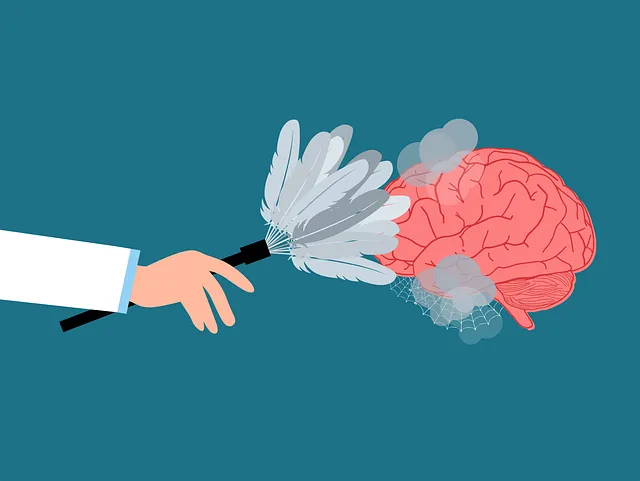In today's digital age, Littleton Kaiser Permanente Mental Health leads in promoting mental wellness through innovative solutions. Mental wellness apps, inspired by their Depression Prevention programs, offer convenient access to tools for mood management, therapy, and meditation. These apps should include personalized features, evidence-based strategies, and mental health education. Development requires market research, robust security, and collaboration with experts. Integrating with Littleton Kaiser Permanente expands reach, enables data sharing for personalized care, and supports healthcare provider well-being while fostering culturally sensitive practices for inclusive mental healthcare.
In today’s fast-paced world, mental wellness apps are transforming access to support, offering individuals a convenient way to manage stress and improve overall well-being. This article explores the growing importance of these digital tools, highlighting key features like personalized therapy sessions, mindfulness exercises, and tracking progress. We delve into the development process, best practices, and successful integration with healthcare providers like Littleton Kaiser Permanente, showcasing how tech can enhance mental health services.
- Understanding the Need for Mental Wellness Apps
- Key Features and Functionality of Effective Apps
- Development Process and Best Practices
- Integrating with Healthcare Providers like Littleton Kaiser Permanente
Understanding the Need for Mental Wellness Apps

In today’s fast-paced world, mental wellness has emerged as a critical aspect of overall health, with an increasing recognition of the impact on both individuals and communities. Organizations like Littleton Kaiser Permanente Mental Health are at the forefront of this shift, highlighting the growing demand for accessible and effective mental health solutions. This trend has been further propelled by advancements in technology, which present unique opportunities to reach and support a broader spectrum of people.
Mental wellness apps offer a digital approach to addressing various aspects of mental health, including mood management and conflict resolution techniques. With features like personalized therapy sessions, meditation guides, and even Mental Wellness Podcast Series Production, these applications cater to diverse user needs. They provide convenient tools for self-care, ensuring individuals can take charge of their mental well-being anywhere, anytime, just as Littleton Kaiser Permanente Mental Health advocates for community-based solutions.
Key Features and Functionality of Effective Apps

Effective mental wellness apps should offer a comprehensive suite of features designed to support user well-being. Key functionalities include personalized goal setting, tracking moods and symptoms, access to evidence-based coping strategies, and resources for stress management. These tools empower users to actively participate in their mental health journey, much like the Depression Prevention programs designed by Littleton Kaiser Permanente mental health experts. Incorporating Mind Over Matter principles through affirmations, mindfulness exercises, and positive reinforcement can significantly enhance app engagement and outcomes.
Moreover, high-quality apps should prioritize Mental Health Education by providing accessible information on various mental health conditions, treatment options, and self-care practices. Well-designed content modules, interactive quizzes, and expert-led webinars contribute to raising awareness and fostering a better understanding of mental wellness. By integrating these features, app developers can create engaging platforms that not only support individuals in managing their symptoms but also encourage long-term mental health maintenance.
Development Process and Best Practices

The development process of a mental wellness app, such as those designed to support individuals in their journey with Littleton Kaiser Permanente mental health services, involves several key steps. Firstly, conducting thorough market research to understand user needs and existing solutions is essential. This should include engaging with mental health professionals and consumers alike to gather insights on desired features, privacy concerns, and integration potential with healthcare systems like Kaiser Permanente.
Best practices in app development for mental wellness emphasize security and data privacy, especially when dealing with sensitive information. Implementing robust encryption methods and adhering to healthcare regulations like HIPAA is crucial. Additionally, incorporating evidence-based Compassion Cultivation Practices within the app’s design can enhance user experience and outcomes. Regular updates based on user feedback and ongoing research ensure the app remains relevant and effective in promoting mental well-being. Incorporating tools for self-assessment, mindfulness exercises, and support networks can significantly contribute to the overall success of the application, fostering a sense of community while encouraging proactive Risk Assessment for Mental Health Professionals.
Integrating with Healthcare Providers like Littleton Kaiser Permanente

Integrating with healthcare providers like Littleton Kaiser Permanente is a strategic move that can significantly enhance the accessibility and effectiveness of mental wellness apps. By partnering with established medical institutions, app developers can tap into existing patient networks, ensuring a wider reach for their services. This integration allows for seamless data sharing, enabling mental health professionals to offer personalized care plans, tailored to individual needs. For instance, a mental wellness app could sync with Littleton Kaiser Permanente’s records, providing clinicians with real-time insights into patients’ emotional regulation and overall mental health status.
Such collaboration facilitates the implementation of burnout prevention strategies for healthcare providers, who are often at risk due to high-stress work environments. By leveraging app technologies, professionals can access tools that support their own emotional well-being, fostering a culture of resilience within the medical community. Additionally, integrating cultural sensitivity in mental healthcare practice is made easier with these partnerships, as apps can be designed to cater to diverse patient populations, ensuring inclusive and effective care for all individuals seeking mental wellness support.
Mental wellness apps have emerged as a crucial tool in addressing the growing demand for accessible and personalized mental health support. By incorporating evidence-based practices and engaging features, these applications can effectively cater to diverse user needs. The development process involves careful planning, user research, and collaboration with healthcare professionals like Littleton Kaiser Permanente to ensure accuracy and effectiveness. Integrating these apps into established healthcare systems opens doors to wider reach and improved patient outcomes in the realm of mental health management.






